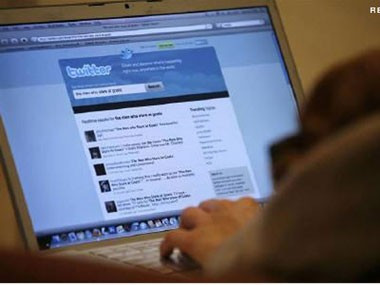Drunken Tweets Unlikely to be Prosecuted Under Updated UK Guidelines
New guidelines from the Director of Public Prosecutions (DPP) could see fewer people charged for offensive messages posted on social networks like Twitter in England and Wales.

DPP Keir Starmer said that people should only face trial if their comment on Twitter, Facebook, or other social networks goes beyond being offensive, and that the new guidelines are aimed at combating recent "chilling effects" seen on free speech.
In an attempt to "strike the right balance between freedom of expression and the need to uphold criminal law," the guidelines mean some people could avoid trial if they remove an offending tweet and apologise for it.
Set out on 18 December, the guidelines say that if someone posts a message online that clearly amounts to a credible threat of violence, specifically targets an individual, or breaches a court order designed to protect someone - such as a rape victim - then the person who sent the message should face prosecution.
It adds that someone who passes the offending message on - such as retweeting - may also be prosecuted.
But, online messages and tweets which are deemed as "grossly offensive, indecent, obscene or false" will face a much tougher test before the author could be charged. Authors of such messages will only be prosecuted "if they cross a threshold."
Starmer added: "A prosecution is unlikely to be in the public interest if the communication is swiftly removed, blocked, not intended for a wide audience or not obviously beyond what could conceivable be tolerable or acceptable in a diverse society which upholds and respects freedom of expression."
Under the influence
Essentially, if an offensive tweet is posted in the heat of the moment, or while under the influence of alcohol, and the author promptly removes it after realising they shouldn't have said it, then it is unlikely they will be prosecuted.
Mr Starmer added that the guidelines "make a clear distinction between communications which amount to credible threats of violence, a targeted campaign of harassment against an individual or which breach court orders on the one hand, and other communications sent by social media, e.g. those that are grossly offensive, on the other."
Barrister and editor of UK Human Rights Blog Adam Wagner said: "The guidelines are sensible, to a point. They will make it less likely in future that people are prosecuted for saying stupid things online."
Grossly offensive
In an attempt to define "grossly offensive," the Crown Prosecution Service (CPS) states that this term applies to cases that are more than:
- Offensive, shocking or disturbing; or
- Satirical, iconoclastic or rude comment; or
- The expression of unpopular or unfashionable opinion about serious or trivial matters, or banter or humour, even if distasteful to some or painful to those subjected to it.
To be clear, tweets or other messages that are no more than the above will in most cases not lead to a prosecution.
The guidance comes into place after a number of controversial cases have gained media attention, such as the 'Twitter joke trial', in which accountant Paul Chambers was prosecuted for tweeting a joke threatening to blow up Robin Hood airport, as it was closed due to snow.
Starmer told BBC Radio 4's Today programme: "The scale of the problem that we are trying to confront should not be underestimated. There are millions of messages sent by social media every day and if only a small percentage of those millions are deemed to be offensive then there is the potential for very many cases coming before the courts."
The rise of the so-called internet troll - someone who posts offensive messages about, or directly to, their victims on Twitter and elsewhere has led to the CPS dealing with more than 50 cases this year. But with very little case law to guide which trials should go ahead, a set of guidelines was needed.
The interim guidelines do not change the law, but set out the approach prosecutors should follow when considering cases relating to communications sent through social networks. The guidelines come into immediate effect, and are subject to a three-month public consultation, which has now started.
© Copyright IBTimes 2025. All rights reserved.






















